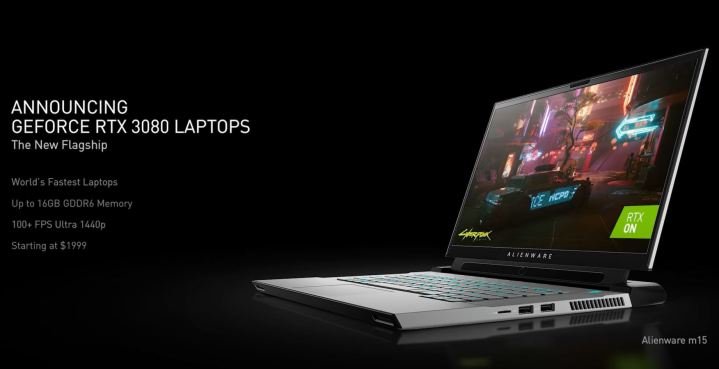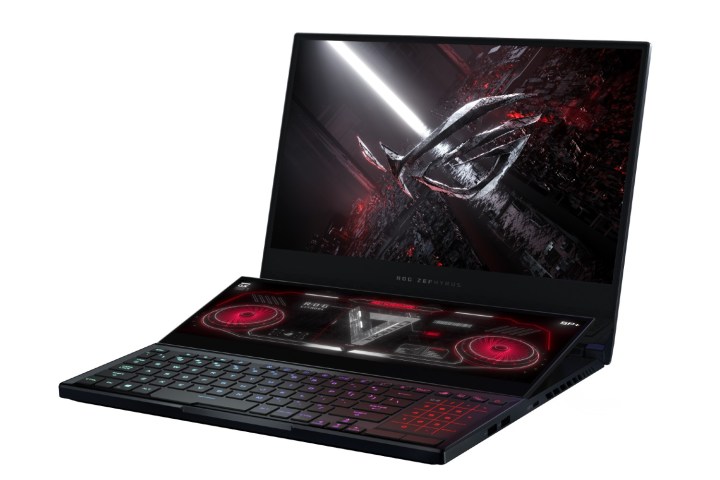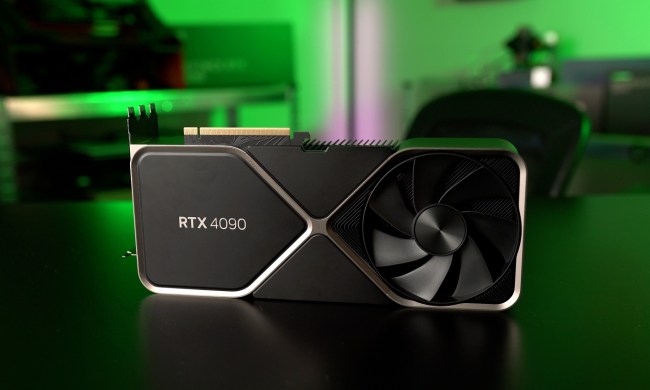Gamers looking for a little extra performance out of their GeForce RTX 3080-powered notebook can now get it with a simple little tweak. By flashing a vBIOS file from a machine with a higher TDP, gamers can get as much as 20% extra performance from their RTX 3080 laptops.
Gamers posting to China’s Baidu forums have shown that an Asus ROG Zephyrus Duo 15 laptop with an RTX 3080 mobile GPU clocked at 115W TDP can be flashed with a vBIOS from an MSI GE76 system, which has an RTX 3080 card with a 155W TDP. After the new vBIOS was flashed to the Zephyrus, a benchmark taken with the 3DMark Time Spy tool shows that performance was increased by approximately 20%.
The reason that this hack was needed — particularly by enthusiast gamers who need to squeeze as much performance out of their GPU as possible — is because the RTX 3080 card inside the Asus-made ROG Zephyrus is limited by its thermal design, with a TDP of 115W that can go as high as 130W with Dynamic Boost. The laptop’s slim form factor means that heat dissipation and thermal regulation could prove to be challenging, and Asus and Nvidia decided to cap the RTX card’s performance for that particular chassis design to keep the system optimal.

However, Nvidia’s RTX 3000 series mobile cards on a bulkier laptop — which has more space for cooling — could go as high as 150W, which means gamers, graphics designers, and creative professionals can get more performance with a trade-off in size and weight. This hack, in essence, forces the GPU to operate at a higher TDP in a laptop with a slimmer profile.
Because the laptop is forced to operate at a higher TDP, it’s unclear how the system is affected in terms of noise — whether fans have to spin faster or more constantly is unknown — and stability in the long run.
After the vBIOS was flashed, it appears that performance of the tweaked ROG Zephyrus 15 is higher than that of the MSI GE76, which was the laptop originally designed to work with a 150W TDP RTX 3080 GPU, according to Videocardz. The 3DMark results showed that the tweaked Zephyrus 15 placed first, displacing the the MSI system, which fell to seventh place.

While bumping the TDP and overclocking a system could sometimes lead to higher operating temperatures — which would not be ideal on a mobile system like a laptop — this appears to not be the case. According to PC Gamer, the Zephyrus Duo 15 managed to run at 72-degrees Celsius. Despite the limited success story here, temperatures could still rise over time, and it’s unclear what flashing a vBIOS to a different machine would do to that system’s thermal performance. As with unofficial hacks and tweaks, it might be tomfoolery for an inexperienced hands to try this on their own systems at home, as a lot can potentially go wrong.



